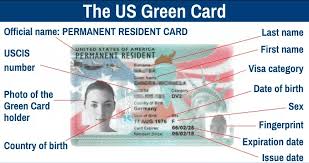Canada Government Student Loan for International Students
Canada is one of the most sought-after study destinations for international students. Renowned for its world-class educational institutions, multicultural society, and high standard of living, it attracts students from all corners of the globe.
One of the main concerns for these students is the cost of education, which can be quite significant. Unlike domestic students, who have access to various forms of government aid such as grants, scholarships, and loans, international students face different financial hurdles.
This article explores the availability of student loans for international students in Canada, focusing on government and alternative options. We will also examine the criteria, application processes, repayment methods, and how students can successfully manage their finances while studying in Canada.
Overview of the Canadian Student Loan System
In Canada, the student loan system is managed by the federal and provincial/territorial governments. The Canada Student Financial Assistance Program (CSFAP) offers loans and grants to Canadian citizens, permanent residents, and protected persons to help them cover the cost of post-secondary education. These loans are need-based, and students are expected to repay them once they complete their studies.
For domestic students, the government loan system is robust, offering low-interest loans and flexible repayment terms. However, international students generally do not qualify for these government-provided loans. Their financial aid options primarily include scholarships, bursaries, and private loans, but the specific conditions can vary depending on the province and the institution.
Why Are Government Loans Not Available to International Students?
The Canadian government primarily reserves financial aid programs for its citizens, permanent residents, and protected persons (refugees, for instance) because of the economic investment these individuals will likely contribute back into the Canadian economy. International students, on the other hand, do not have the same guaranteed long-term connection to the country. For this reason, they do not typically qualify for government student loans.
International students must rely on other funding options, including self-financing, scholarships, bursaries, private loans, and financial support from their home countries.
Alternative Financial Aid Options for International Students in Canada
While government loans may not be accessible to international students, Canada still offers several alternative financial aid options, which include scholarships, bursaries, and private loans. Below is a breakdown of these options:
1. Scholarships and Grants
Many Canadian institutions offer scholarships to international students based on academic merit, extracurricular activities, and leadership skills. These scholarships are typically awarded during the admission process and are a great way to reduce the financial burden of studying abroad.
- University-specific scholarships: Most Canadian universities offer scholarships tailored to international students. These scholarships may cover full or partial tuition costs and are usually merit-based, meaning students must maintain a high level of academic achievement throughout their studies.
- Government-funded scholarships: While the federal government does not provide student loans, it does offer several scholarships specifically for international students. For example, the Vanier Canada Graduate Scholarships is a prestigious award aimed at attracting and retaining world-class doctoral students. The Banting Postdoctoral Fellowships are another form of government-funded scholarships for international students pursuing postgraduate research.
- Provincial scholarships: Some provinces in Canada offer their own scholarships and bursaries. For example, Ontario offers the Ontario Graduate Scholarship (OGS) to international students pursuing a master’s or doctoral degree at participating institutions in the province.
2. Bursaries
Bursaries are non-repayable funds awarded to students based on financial need. These are often offered by individual universities and can be especially helpful for international students who may not have access to the same financial resources as their Canadian counterparts.
Bursaries can be applied for through the institution’s financial aid office, and students are typically required to submit proof of financial hardship. While they are less common for international students than for domestic ones, several institutions in Canada provide bursary options to help international students meet their financial needs.
3. Private Student Loans
Private student loans are another option for international students who need additional financial support. Unlike government loans, private loans are provided by banks or other financial institutions and typically require a co-signer who is a Canadian citizen or permanent resident. This co-signer will be responsible for repaying the loan if the borrower defaults.
- Eligibility: Private loans usually require that the student has a Canadian co-signer with a strong credit history. This can be a significant barrier for international students, especially if they do not have relatives or acquaintances in Canada. However, some institutions are increasingly offering international student loan programs with relaxed conditions or without the need for a co-signer.
- Interest Rates: Interest rates on private student loans can vary, but they are generally higher than government loans. Depending on the lender, interest rates may be fixed or variable, and repayment terms will vary based on the loan amount, borrower’s credit history, and other factors.
4. Education Loans from Home Country
In many cases, international students may find it easier to secure student loans from financial institutions in their home country. Some governments also offer financial aid for citizens studying abroad, including low-interest loans and scholarships. These loans can sometimes be more accessible than loans in Canada, especially if they do not require a Canadian co-signer.
Students are advised to consult with their home country’s financial aid programs, education ministries, or local banks to see if any education loan programs are available for studying in Canada.
5. Part-Time Work
In addition to scholarships, bursaries, and private loans, international students can supplement their income by working part-time while studying. The Canadian government allows international students on a valid study permit to work up to 20 hours per week during academic sessions and full-time during scheduled breaks, such as summer or winter holidays.
This employment can help cover living expenses, although it may not be sufficient to pay for tuition and other large expenses. Moreover, working while studying can provide students with valuable work experience in Canada, which can be an advantage when applying for permanent residency after graduation.
Financial Institutions Offering Loans to International Students
Several Canadian banks and financial institutions offer loans or lines of credit to international students. Here are some of the most notable:
- RBC (Royal Bank of Canada): RBC offers student lines of credit to international students who have a Canadian co-signer. This line of credit can be used to pay for tuition, books, and living expenses. Interest rates are generally lower than other forms of personal loans, and students are only required to make interest payments while studying.
- Scotiabank: Scotiabank provides the Scotiabank Student Line of Credit for professional students. Like RBC, international students will need a co-signer to qualify. The funds can be used for tuition, living expenses, and other educational costs.
- Prodigy Finance: Prodigy Finance is an international loan provider that focuses on offering loans to students pursuing graduate programs abroad, including in Canada. They do not require a co-signer, which makes them a popular choice for international students.
How to Manage Your Finances as an International Student
Managing finances while studying abroad can be challenging, especially for international students who may not have access to the same financial aid as domestic students. However, careful planning and budgeting can help students manage their costs effectively. Here are some tips:
- Create a Budget: Before arriving in Canada, create a detailed budget outlining your estimated expenses, including tuition, accommodation, food, transportation, and other living costs. Make sure to account for unexpected expenses as well.
- Look for Scholarships and Bursaries: Actively search for scholarships and bursaries that you may be eligible for. Many universities in Canada have scholarships specifically for international students, so be sure to check the financial aid sections of their websites.
- Consider Part-Time Work: Take advantage of the opportunity to work part-time while studying in Canada. This can help offset living expenses and provide valuable work experience.
- Plan for Currency Exchange Fluctuations: As an international student, you may need to convert currency from your home country into Canadian dollars. Be aware of exchange rate fluctuations and plan accordingly.
- Seek Financial Advice: Many universities have financial aid offices or counselors who can provide advice on managing your finances and applying for scholarships, bursaries, or private loans.
Conclusion
While the Canadian government does not offer student loans to international students, there are still several financial aid options available to help international students cover the cost of their education. Scholarships, bursaries, private loans, and part-time work opportunities can significantly reduce the financial burden of studying in Canada.
Careful financial planning is essential for international students, as studying abroad can be expensive. By exploring all available options and making informed decisions, international students can successfully finance their education and make the most of their experience in Canada.






